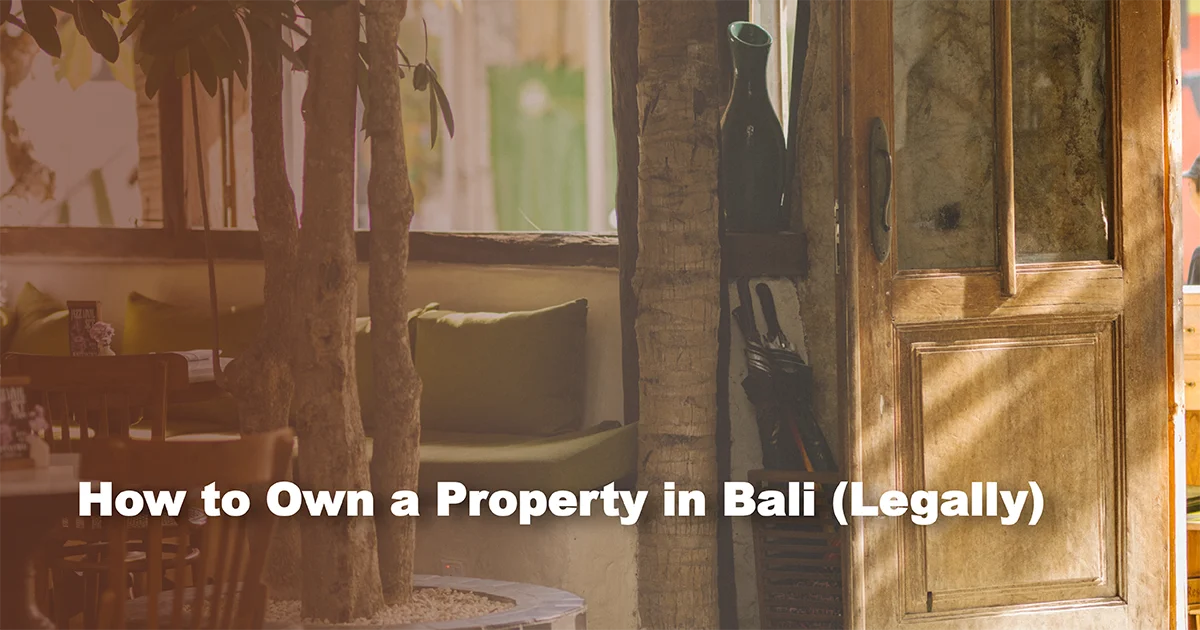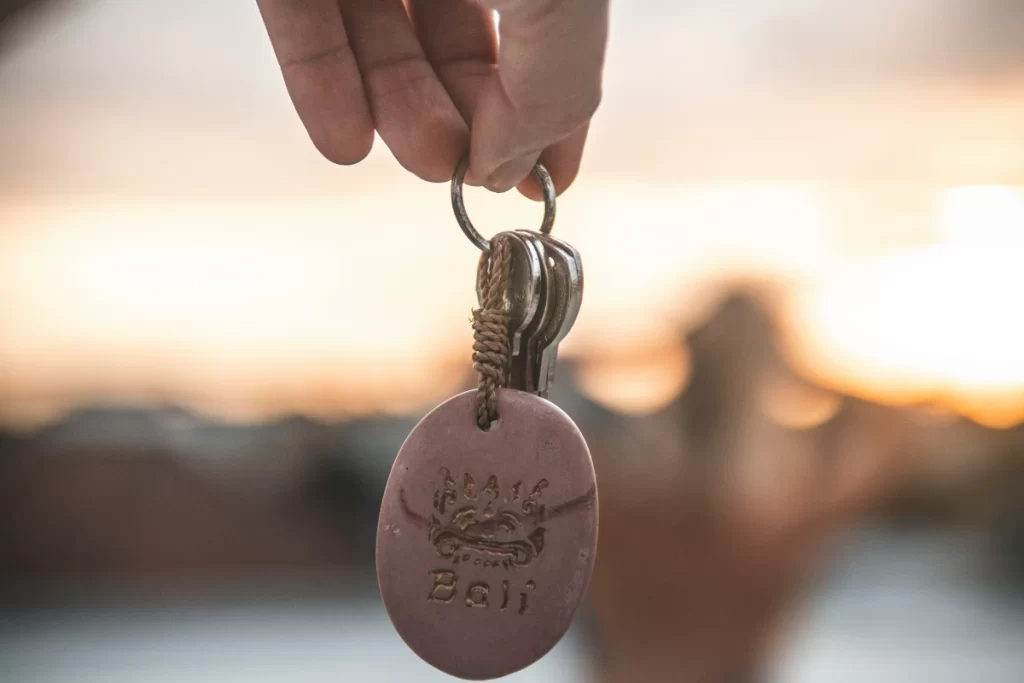How to Own Property in Bali (Legally): A Guide for Foreigners 2025
Dreaming of owning a villa surrounded by palm trees and ocean breezes? Bali often tops the list for digital nomads, retirees, and investors looking to enjoy island life or generate rental income. But before you fall in love with that cliffside view, it’s crucial to understand how property ownership works for foreigners in Indonesia. Here’s a friendly and clear guide to help you navigate it all legally and confidently.
Read also: Best Contractors in Bali for Foreign Investors
Can Foreigners Own Property in Bali?
The short answer is: not directly. Under Indonesian law, foreigners cannot hold freehold (Hak Milik) title. However, that doesn’t mean it’s impossible to legally acquire property in Bali. There are severals ownership structures that allow foreigners to use, lease, or control property, each with different terms, benefits, and legal obligations. Understanding these structures is crucial before making any investment. Below are the most common options for foreigners, along with some do’s and don’ts to guide your decision.
1. Leasehold
Ideal for long term living or rental investments, leasehold (Hak Sewa) is the most straightforward and common option for foreigners. You can lease land or property for up to 25 years, with an option to renew for an additional 20 to 45 years depending on your agreement. Unlike ownership, you’re essentially renting the land or home for an extended period, but it’s still legally recognized.
One of the key advantages is flexibility. You don’t need Indonesian citizenship or a company setup to sign a leasehold. It’s also transferrable and suitable whether you want to build, live, or operate a rental unit. However, you are still leasing, not owning outright. This means the value of the property may depreciate over time, especially as the lease term shortens. Future buyers might also be hesitant to take over a short term lease, which can affect your resale options.
– Do: Hire a licensed notary to verify ownership, zoning, and register your lease with the National Land Agency (BPN).
– Don’t: Neglect due diligence. Always investigate for existing land disputes, unregistered owners, or unclear zoning. Skipping this step could lead to legal complications or even loss of your investment.
2. Right to Use
If you’re planning to stay in Bali long term and hold a temporary (KITAS) or permanent (KITAP) stay permit, the Right to Use (Hak Pakai) is a legal option to consider. This title allows you to use the property, typically for residential purposes, for an initial period of 30 years. It can then be extended twice, first for 20 years and again for another 30 years, totaling up to 80 years.
The main appeal of Hak Pakai is that the property can be under your own name and is backed by the government, making it a relatively secure title. It’s a smart option for retirees or expatriates planning to live in Bali full-time. The downside is that you must hold a valid Indonesian residency visa, and you’re limited to one property per individual under this title. It also doesn’t offer much flexibility if you’re not planning to live in Bali long term.
– Do: Ensure the property is eligible for Hak Pakai conversion and that your visa is valid for the duration of use.
– Don’t: Rely on this title if you don’t have a valid stay permit (KITAS or KITAP) or if your visits to Bali are short term. This option is specifically designed for those planning to live in Indonesia long-term, and without the right visa, you won’t qualify.
3. Nominee Ownership (Not Recommended)
Nominee ownership involves placing the property under the name of an Indonesian citizen often a trusted friend or partner, while drafting legal agreements like a loan contract, power of attorney, or leaseback agreement to give you control.
While it might seem like a shortcut to ownership, this method is legally risky. Since the nominee is the official owner, you have no true legal protection if anything goes wrong. If the nominee decides to sell, deny the agreement, or runs into legal trouble, you could lose your property entirely. Courts in Indonesia often see nominee agreements as legal loopholes and may not recognize your claims if disputes arise. Even with carefully drafted contracts, this method carries a high level of uncertainty.
– Do: Consider safer alternatives like leasehold or PT PMA if you want long term control.
– Don’t: Use nominee structures unless you fully understand the risks and are prepared for the legal vulnerability.
4. Foreign-Owned Company (PT PMA)
For those wanting to run a business in Bali such as a villa rental, resort, cafe, or real estate project, a PT PMA (foreign owned company) offers a fully legal path to acquire and control land. Under this setup, the company (not the individual) can hold land under the Right to Build (Hak Guna Bangunan) title.
The benefits are significant. With a PT PMA, you can legally control land, build commercial structures, and operate multiple properties. It’s the only route that offers actual ownership rights for foreigners in a business context. However, it comes with higher upfront and ongoing costs. You’ll need to set up the company according to strict legal guidelines, file regular reports, and maintain compliance with Indonesian regulations. It’s not a hands-off solution, it works best for those planning to be actively involved in running a business.
– Do: Consult a qualified corporate lawyer or agency to establish your PT PMA and stay compliant.
– Don’t: Opt for this route if you’re only seeking a vacation home or a passive investment. PT PMA is best suited for those with clear business intentions and the capacity to manage ongoing legal and financial responsibilities.
Read more: How to Get a KITAS in Bali: A Complete Guide for Expats 2025
Estimated Costs to Expect
Buying or leasing property in Bali comes with several additional costs that are important to factor into your budget:
- Lease registration & legal fees: Typically range from IDR 20-30 million, depending on the complexity of the deal.
- Notary fees: Generally 1-2.5% of the property’s value. These cover contract drafting, legal checks, and registration.
- Transfer taxes: Sellers pay a 2.5% income tax, while buyers must pay a 5% acquisition tax on the property value.
- Company setup (PT PMA): Expect to pay between IDR 25-50 million for setup, plus yearly maintenance, tax filing, and licensing costs.
Final Thoughts
Yes, foreigners can own property in Bali. However not through traditional freehold. With the right legal structure, trusted local professionals, and a clear understanding of costs, you can invest in your dream home or business confidently and legally. Take it slow, do your homework, and surround yourself with the right professionals. Avoid shortcuts, double-check all documents, and make sure every step aligns with local laws, culture and translate every agreement clearly.
Buying property in Bali isn’t a race, it’s a journey that pays off when done right. Ready to make smarter property choices in Bali?












